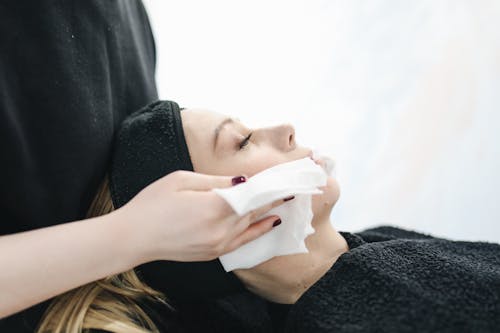How to Take Care of Skin during Winter?

By Neucrad Health news desk February 24, 2020
There is a noticeable decrease in temperature and moisture content in the air during winter. When the minimum temperature reaches below 10·Celsius, many of you might experience drying of the skin, chapped lips, itchy hands and legs, and cracked heels. It makes our skin lose its natural radiance and make it prone to rashes and itching. However, if you take adequate care of skin since the beginning of winter, then you can limit the chances of developing dryness and rashes. Here are a few tips advocated by top-rated Dermatologists for a naturally glowing and flawless skin.
Avoid Bathing in Hot Water

When the minimum temperature dips below 10•Celsius, many of you might get tempted to taking a bath in hot water. However, leading Dermatologists recommend that too much hot water is not suitable for the skin. It minimises the essential moisturiser naturally present on the epidermis. It is better to dip in lukewarm water and restrict the shower time to a maximum of ten minutes. Use an organic moisturising soap to take care of the dryness of the skin. Limit the uses of alcohol-based cleansers, scented soaps, bath sponges and body brushes during winter months.
Pick the Correct Moisturiser

It is essential to use a good quality moisturiser after bath to keep the skin hydrated. It forms a protective layer on the epidermis and prevents the loss of moisture from its outer layers. If you have exceptionally dry skin, then you can consider using a medicated ointment instead of a cream or lotion during winter. Natural oil like coconut, avocado, and almond is also great for the skin. Do not select a mineral oil as there are complaints of skin clogging in some users. Shea butter or cocoa butter based moisturiser also works wonder for most individuals.
Winter is Excellent for Skin Peels

Winter is the favourite time for opting for skin peels. During this time of the year, sun rays are less intense so you can conveniently follow the aftercare routine. Skin peels help in treating wrinkles caused due to sunburn, diminishes fine lines, improve skin texture, and restore natural radiance. Here the Dermatologist applies one or more solutions on the skin containing glycolic acid, salicylic acid, trichloroacetic acid, or lactic acid. It leads to a controlled wound, which eventually peels off and reveals the soft and supple epidermis underneath. There are three types of peels- light, medium, and deep. The light peel helps in skin rejuvenation, medium peel reduces hyperpigmentation and scaring, while the deep peel removes wrinkles and sun damage. Consult with doctors for suggesting the best peel according to your skin type.
Prepare a Natural Scrub

Natural organic ingredients are always better for the skin than chemical cosmetics. So, this winter ditch your regular chemical-based moisturiser and toner; instead whip up a home-based scrub to exfoliate the skin naturally.

You will require a banana, two tablespoons of honey, and two tablespoons of oats for this skincare regime. Mash the banana, and add the other ingredients to form a homogenous mixture.

Now, apply it on your face and let it dry for a few minutes. After that, scrub off the mixture by massaging the skin in circular motions. Rinse the face and then apply a rose-water toner.
In addition to the before-mentioned skincare programmes, drink an adequate quantity of water to stay hydrated during winter. It is also beneficial to wear breathable fabric like cotton t-shirts under a sweater or a cotton shirt under a coat to prevent skin irritation. The heels are prone to crack; keep them protected with socks. These skincare regimes will help you nourish your skin and avoid dryness even during a harsh winter.





